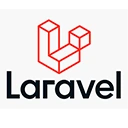Creating a Data Warehouse is a pivotal aspect of modern business intelligence and analytics. Laravel, a popular PHP framework, provides a powerful platform for building and maintaining Data Warehouses, especially when it comes to advanced ETL (Extract, Transform, Load) processes. In this guide, we'll delve into this process and explore how Laravel empowers you to handle complex data operations using HTML tags to illustrate key concepts.
Understanding ETL in Data Warehousing
ETL (Extract, Transform, Load) is the backbone of any data warehousing solution. It involves extracting data from various sources, transforming it into a unified format, and loading it into the Data Warehouse for analysis and reporting.
Laravel and Data Warehousing
Laravel provides a comprehensive environment for building ETL processes. Its Eloquent ORM, data migration tools, and Artisan commands simplify the handling of data operations.
Extracting Data
When working with Laravel for data warehousing, data extraction is typically accomplished through various methods such as database connections, API requests, or file imports. These data sources serve as input for your ETL processes.
Transforming Data
Laravel's Eloquent ORM and data transformation tools allow you to reshape, clean, and enhance your data. This step is crucial in preparing the data for analysis, and Laravel's features make it relatively straightforward.
Loading Data into the Warehouse
Laravel's migrations and seeding capabilities are invaluable for loading data into your Data Warehouse. You can create database tables, define relationships, and populate them with transformed data using Artisan commands and custom scripts.
Scheduling ETL Processes
Laravel's built-in task scheduler makes it easy to automate ETL processes. You can schedule data extraction, transformation, and loading at specific intervals, ensuring your Data Warehouse remains up-to-date.
Monitoring and Maintenance
After building your Data Warehouse, Laravel's logging and monitoring features help you keep an eye on the health and performance of your ETL processes. It's essential to set up regular maintenance routines for data quality assurance.
Building a Data Warehouse with Laravel and mastering advanced ETL processes is a substantial undertaking that can yield significant insights for data-driven decision-making. Laravel's extensive features and libraries make it a formidable choice for managing the complexities of data warehousing.
For in-depth tutorials, practical examples, and a step-by-step guide to building a Data Warehouse with Laravel, refer to Laravel's official documentation and additional resources specific to data warehousing and ETL processes.

